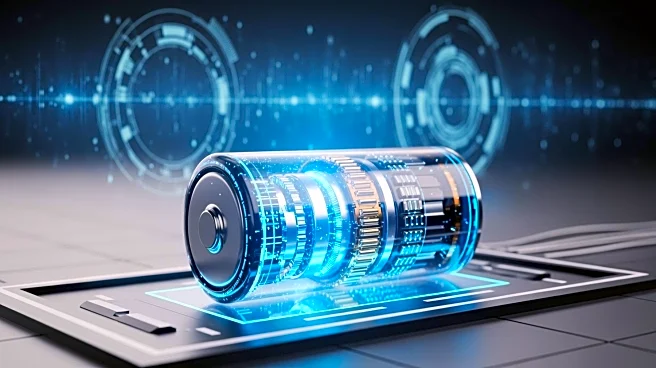What's Happening?
The battery industry is experiencing significant challenges, with 11 business bankruptcies and over $15 billion lost in the past year. Despite advancements in battery chemistries, such as lithium-sulfur
and sodium-ion, the industry struggles with integrating these technologies into real-world applications. The focus on finding a 'winning' chemistry has overshadowed the need for integration solutions, which are crucial for the widespread adoption of new battery technologies. This integration issue is a bottleneck for the deployment of electric vehicles, drones, and other technologies reliant on advanced batteries.
Why It's Important?
The integration challenges facing the battery industry have far-reaching implications for the future of electrification and sustainability. Batteries are a foundational component of modern technology, essential for electric vehicles, renewable energy storage, and more. Without effective integration, the potential of new battery chemistries cannot be fully realized, hindering progress towards a low-carbon future. Addressing these challenges is critical for maintaining economic competitiveness and achieving environmental goals. The industry's ability to overcome these hurdles will determine the pace of innovation and adoption of sustainable technologies.
Beyond the Headlines
The focus on integration highlights the need for a shift in how the battery industry approaches innovation. Rather than prioritizing individual chemistries, the industry must develop flexible solutions that accommodate various technologies. This approach could lead to a more resilient and adaptable battery ecosystem, capable of supporting diverse applications. The emphasis on integration also underscores the importance of collaboration between researchers, manufacturers, and policymakers to create a supportive infrastructure for battery innovation. By addressing these challenges, the industry can unlock new opportunities for growth and sustainability.









